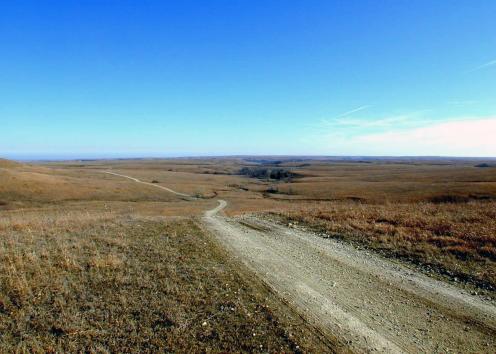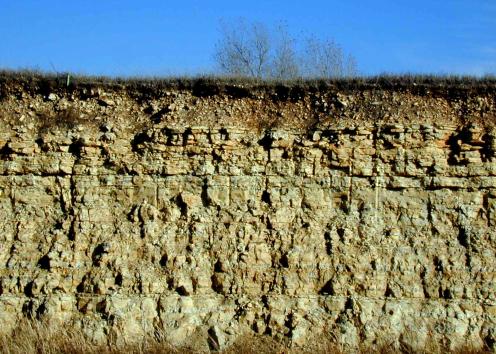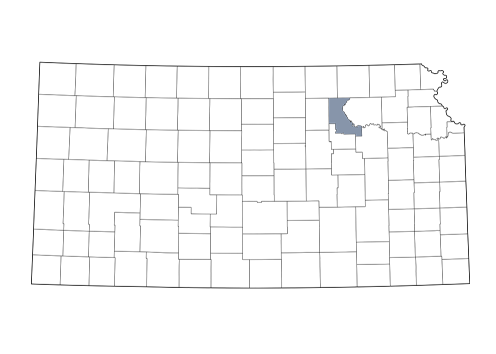Konza Prairie Biological Station

Within the Flint Hills, the Konza Prairie Biological Station is an 8,616-acre tallgrass prairie preserve and research area operated by the Kansas State University Division of Biology. Although much of the area is off limits to non-researchers, a good-sized portion is set aside for public use.
In the public access area, three looping hiking trails, ranging in length from 2.6 miles to 6.2 miles and varying in difficulty, provide access to forest-lined King Creek, native tallgrass prairie, and Permian limestone outcrops. Besides watching for wildflowers and wildlife, hikers can scan the rocks for brachiopods, bryozoans, and other marine fossils—the remains of animals that lived there about 250 million years ago when shallow seas covered Kansas during the Permian Period.
Much of the Konza Prairie has never been plowed, making it an ideal place for KSU and visiting scientists from around the world to perform biological experiments and study tallgrass prairie ecosystems. Researchers burn different sections of the preserve at different frequencies—from annually to every 20 years—to simulate natural conditions that occurred before fires were controlled. They also reintroduced bison in some areas to replicate grazing patterns prior to the last half of the 19th century when the animals were hunted to near extinction.
K-177 Overlook Park on the northeast corner of the Konza Prairie Biological Station provides an easy stop for a sweeping view of the preserve and the Kansas River valley. Serving as an interpretive center, the park is on the west side of Kansas Highway 177 about three miles south of Manhattan.
Konza Prairie Biological Station is owned by the Nature Conservancy and Kansas State University. The trails, inside the main entrance of the preserve off McDowell Creek Road, and K-177 Overlook Park are open from dawn to dusk.


